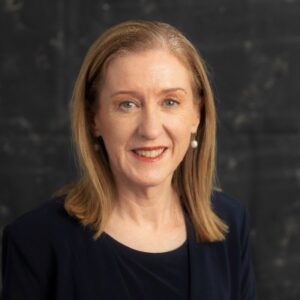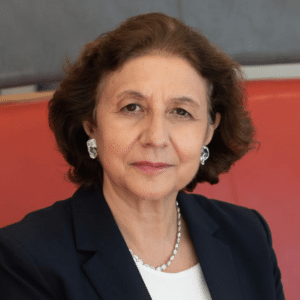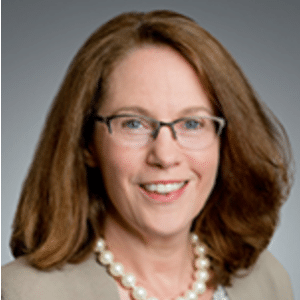Cherry Blossom Financial Education Institute


The 7th Cherry Blossom Financial Education Institute was held on April 21 – 22, 2022 in Washington, D.C. We thank the National Endowment for Financial Education for continuing the sponsorship of the event and supporting the Financial Literacy Research Award and the Rising Financial Literacy Scholar Award.
x
GFLEC is proud to announce the winners of the Financial Literacy Research Award and the Rising Financial Literacy Scholar Award.
Miriam Bruhn from The World Bank won the Financial Literacy Research Award for her research with Gabriel Garber, Sergio Koyama, and Bilal Zia, “The Long-Term Impact of High School Financial Education: Evidence from Brazil.”
Additionally, two papers were selected this year for our Rising Financial Literacy Scholars Award: Maddalena Davoli from Goethe University Frankfurt for her paper with Nuria Rodriguez-Planas, “Culture, Gender, and Financial Literacy,” and Sarah Reiter for her paper with Elisabeth Beckmann, “The Gender Gap in Financial Literacy: Does Ideology Matter?”
We thank the National Endowment for Financial Education for sponsoring the awards.
 |
Beth Bean, Research and Impact Senior Vice President, National Endowment for Financial Education |
Introduction: Annamaria Lusardi and Alessia Sconti, GFLEC
 |
KEYNOTE ADDRESS: “When is Financial Education Successful? Taking Stock of the New Wave of Field Evidence” Bilal Zia, Senior Economist, Development Economic Research Group, The World Bank Presentation |
Session Chair: Veronica Frisancho, Inter-American Development Bank
 |
Miriam Bruhn, The World Bank: “The Long-Term Impact of High School Financial Education: Evidence from Brazil” Paper | Presentation |
 |
Daniel Brent, The Pennsylvania State University: “Financial Literacy and Academic Outcomes” Paper | Presentation |
Session Chair: Brian Mulford, U.S. Security and Exchange Commission
 |
Kristof De Witte, KU Leuven: “Improving Parents’ Financial Literacy through Tutoring their Children” Paper | Presentation |
 |
Anna Lo Prete, University of Turin: “Political Participation and Financial Education: the Importance of Understanding Policy Content” Paper | Presentation |
Session Chair: Alberto Rossi, Georgetown University
 |
Gary Mottola, Research Director, FINRA Investor Education Foundation: “Predicting the Unpredictable: Personal Finance in 2036” Presentation |
Session Chair: Hector Ortiz, Consumer Financial Protection Bureau
 |
Susan Thorp, The University of Sydney: “Motivated Saving: The Impact of Projections on Retirement Contributions” Paper | Presentation |
 |
Taha Choukhmane, MIT Sloan School of Management: “Who Benefits from Retirement Savings Incentives in the U.S.? Evidence on Racial Gaps in Retirement Wealth Accumulation” |
Session Chair: Paolina C. Medina, Texas A&M University
 |
Riccardo Calcagno, Polytechnic University of Turin: “Financial Literacy, Human Capital and Economic Growth” Paper | Presentation |
 |
Alessio D’Ignazio, Bank of Italy: “Micro-entrepreneurs’ Financial and Digital Competences During the Pandemic in Italy” Paper | Presentation |
Session Chair: Jason S. Seligman, Investment Company Institute
 |
Sarah Reiter, Leibniz Institute for Economic Research at the University of Munich (ifo Institute): “The Gender Gap in Financial Literacy: Does Ideology Matter?” Paper | Presentation |
 |
Maddalena Davoli, Goethe University Frankfurt: “Culture, Gender, and Financial Literacy” Paper | Presentation |
 |
Maya Haran Rosen, The Hebrew University of Jerusalem: “The Disparate Effect of Nudges on Minority Groups” Paper | Presentation |
 |
Mateo Velásquez-Giraldo, Johns Hopkins University: “Beliefs, Stockholding and Wealth Accumulation Throughout the Life Cycle” Paper | Presentation |
 |
Moderator: Jill Jones, National Endowment for Financial Education (NEFE) |
 |
Lyn Haralson, Consumer Financial Protection Bureau (CFPB) |
 |
Annamaria Lusardi, GFLEC |
 |
Adair Morse, Deputy Assistant Secretary of Capital Access, Office of Domestic Finance, U.S. Department of the Treasury |
 |
Gerri Walsh, FINRA Investor Education Foundation |